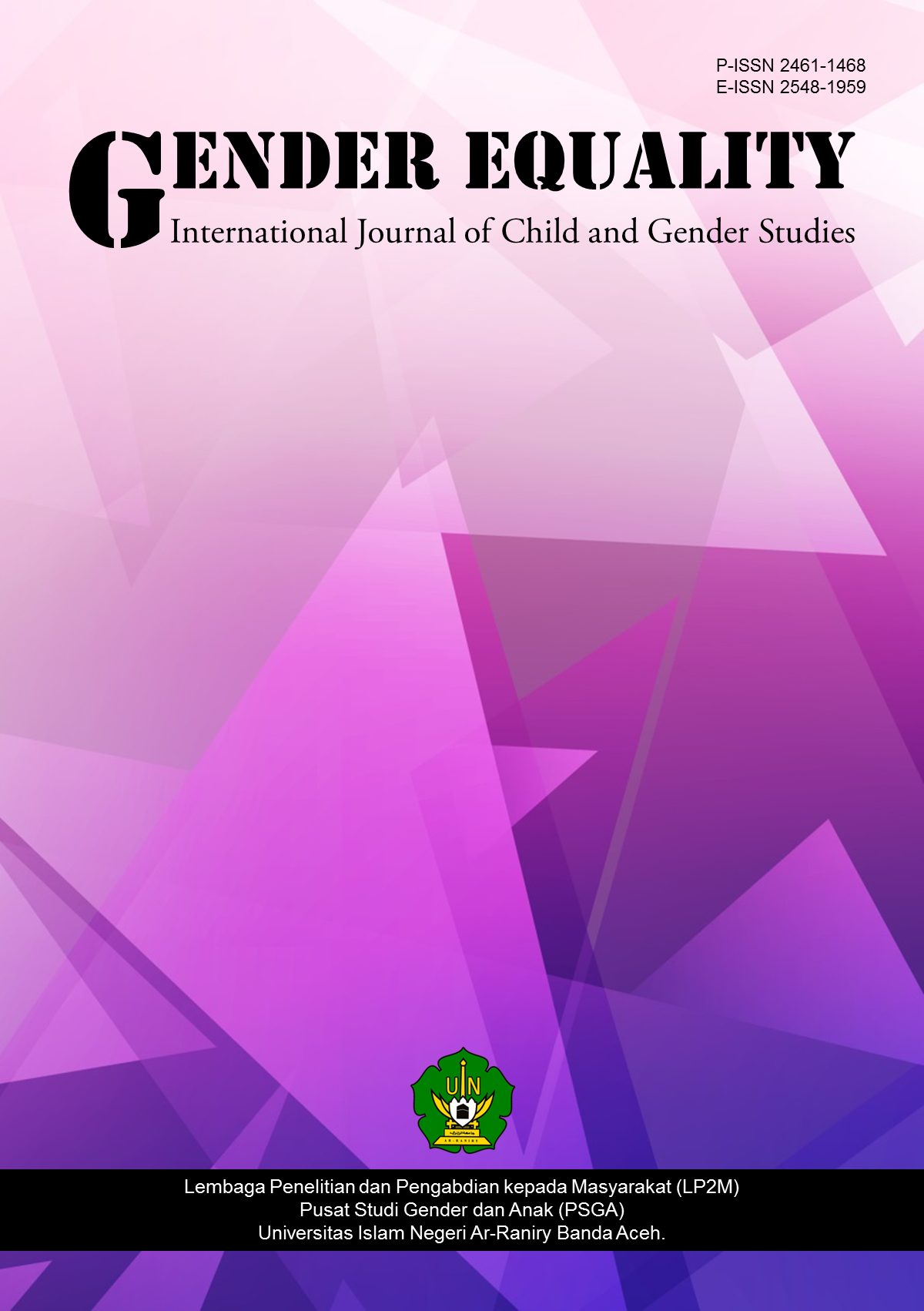Social solidarity collaborative action for equality in education and poverty reduction post conflict and disaster in Aceh, Indonesia
DOI:
https://doi.org/10.22373/equality.v10i1.22862Keywords:
Social-Solidarity, Equality in Education, Vulnerable-Children, Leadership Reform, Poverty ReductionAbstract
Education is a road map of the nation's development, conveying the value of society and the purpose of the nation, where both formulas are invested in curricula. Poverty is a real challenge for education development, and it can be considered a direct result of collective leadership failure in the provision of both quality education and welfare support. This study examines a social collaborative action served by the community to provide an equal education for vulnerable children, a part of a solidarity coping strategy for poverty reduction. The samples of this qualitative approach study are social workers from Yayasan Kesejahteraan Masyarakat Aceh (Yakesma/Aceh Welfare Foundation), who initiates a social collaborative action, involving society, educators, and other stakeholders in various role-play. This study proves that combined actions of social workers, educators, and society in providing equal education to children from lower-income families, beggars, and sexual violence, have given a significant impact on the children and families, giving more access the children to have proper education, formal and non-formal education, financial support through a foster parent program, and provides a role substitute of parents. This collaborative program has created a parthway to a proverty reducation in Aceh, Indonesia. A part of the institution’s main goal to support the vulnerable children in Aceh.
References
Ackerman, D. B. (1989). Intellectual and practical criteria for successful curriculum integration In H. H. Jacobs (Ed.), Interdisciplinary Curriculum: Design and Implementation Alexandria, VA: Association for Supervision and Curriculum Development
Ali, S., & Kelly, M. (2004). Ethics and social research In C. Seale (Ed.), Researching society and culture (2nd ed.). Thousand Oak, CA: Sage
Ary, D., Jacobs, L. C., & Sorensen, C. (2010). Introduction to research in education (8th ed.). Belmont, CA: Wadsworth
Barrie, S., Andrews, J., Dean, L., & Heimanis, I. (2010). Employability: Realising the potential of a university education. In Steve Denton & S. Brown (Eds.), A practical guide to university and college management. New York, NY: Routledge
Biggs, J. (1999). Teaching for quality learning at university: What the student does. Buckingham, England: The Society for Research into Higher Education and Open University press
Boud, D., & Costley, C. (2007). From project supervision to advising: New conceptions of the practice. Innovations in Education and Teaching International, 44(2), 119-130. https://doi.org/10.1080/14703290701241034
Brady, L., & Kennedy, K. (2010). Curriculum construction (4th ed.). Melbourne, Australia: Pearson
Corbin, J., & Strauss, A. (2008). Basics of qualitative research: Techniques and procedures for developing grounded theory (3rd ed.). Thousand Oaks, CA: Sage
Creswell, J. W. (2009). Research design: Qualitative, quantitative, and mixed methods approaches (3rd ed.). Thousand Oaks, CA: Sage
Denzin, N. K., & Lincoln, Y. S. (2003). Introduction: The discipline and practice of qualitative research. In N. K. Denzin & Y. S. Lincoln (Eds.), The Landscape of Qualitative Research: Theories and Issues (2nd ed.). Thousand Oaks, CA: Sage Publications
Habiburrahim, H. (2018). A review of the department of English language education curriculum development. Englisia: Journal of Language, Education, and Humanities, 6(1), 1-14. https://doi.org/10.22373/ej.v6i1.3529
Nashriyah, Alfiatunnur & Dermawan (2021). Examining the efforts of the Aceh Government in dealing with child victims of sexual violence. Gender Equality: International Journal of Child and Gender Studies, 7(2), 273-291. https://jurnal.ar-raniry.ac.id
Orrell, J., & Higgs, J. (2012). Social and political change: Implications for professional and practice-based university education. In J. Higgs, R. Barnett, S. Billet, M. Hutchings & F. Trede (Eds.), Practice-based education: Perspectives and strategies. Rotterdam, The Netherlands: Sense Publishers
Whyte, S. (2011). Learning theory and technology in university foreign language education: The case of French universities. Arts and Humanities in Higher Education, 10(2), 213-234. https://doi.org/10.1177/1474022210364783
Downloads
Published
Issue
Section
License
GENDER EQUALITY: International Journal of Child and Gender Studies allows the author(s) to hold the copyright and to retain the publishing rights without restrictions. Authors who publish with this journal agree to the following terms:
- Authors retain copyright and grant the journal right of first publication with the work simultaneously licensed under a Creative Commons Attribution License that allows others to share the work with an acknowledgment of the work's authorship and initial publication in this journal.
- Authors are able to enter into separate, additional contractual arrangements for the non-exclusive distribution of the journal's published version of the work (e.g., post it to an institutional repository or publish it in a book), with an acknowledgment of its initial publication in this journal.
- Authors are permitted and encouraged to post their work online (e.g., in institutional repositories or on their website) prior to and during the submission process, as it can lead to productive exchanges, as well as earlier and greater citation of published work.



